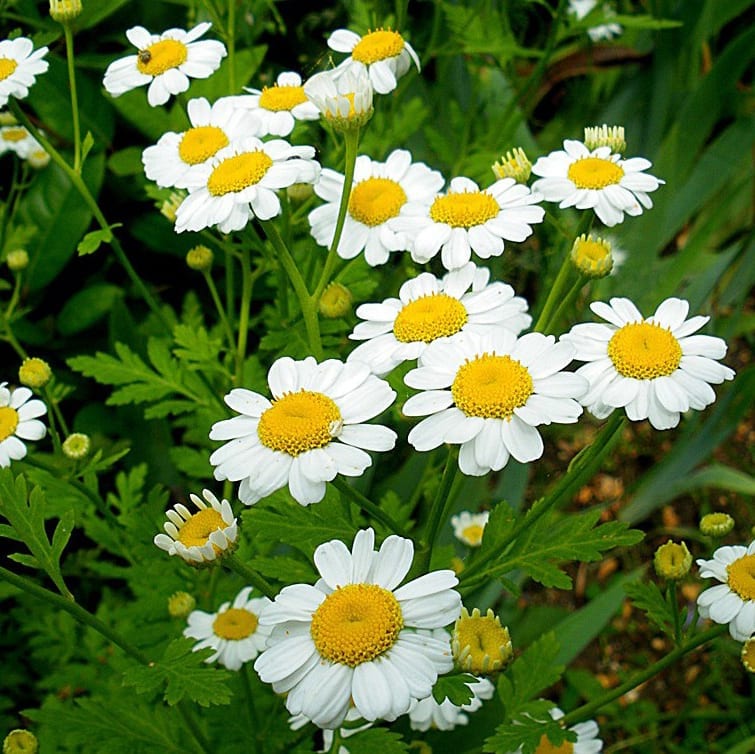| Maturity (days) | Perennial |
|---|---|
| Plant height (cm) | 40-50 |
| Spreading (cm) | 15-20 |
| Formulation | Untreated |
Chamomile
Chamomile
3.79$
In stock
Chamomile has been added to cart
Buy 3 and get a 10% discount
Camomile produces a multitude of flowers and is quite popular for tea infusions.
Cultivation mode
Plantation : Indoor: for early flowering, the seeds are sown individually in April.Outdoor: chamomile is sown directly in place, in May or June, after any risk of frost. Do not cover the seeds, they need light to germinate. If chamomile is popular, sowing from one year to the next is spontaneous.
Soil : Indoor: A well-drained, porous seedling soil is ideal for preventing overwatering.Outdoor: he will adapts to all types of soil. The soil will have been previously enriched with well-decomposed compost.
Spacing : 25-30 cm between each plants.
Cultural practices : chamomile requires almost no maintenance, as it is an easy plant that has the advantage of growing without special care. Removing faded flowers over time stimulates the appearance of new inflorescences. At the end of the season, cut the stems as short as possible, it will start again the following spring. To rejuvenate plants, divide them in the fall every three years.
Harvest : the harvest of chamomile flowers takes place when the flowers are freshly opened, but fully bloomed. Pick them preferably in the morning. Dry the flowers by spreading them out on a flat, dry surface in a well-ventilated place and protected from light. After a few days, when the flowers start to turn brown and crumble, they are dry. You will keep the chamomile flowers in an airtight box in a dry place.
| Latin name |
Matricaria recutica |
|---|---|
| Companion plants |
beetroot, cabbage, cucumber, garlic, pickling cucumber, Swiss chard, onion |
| Rival plants |
mint |

